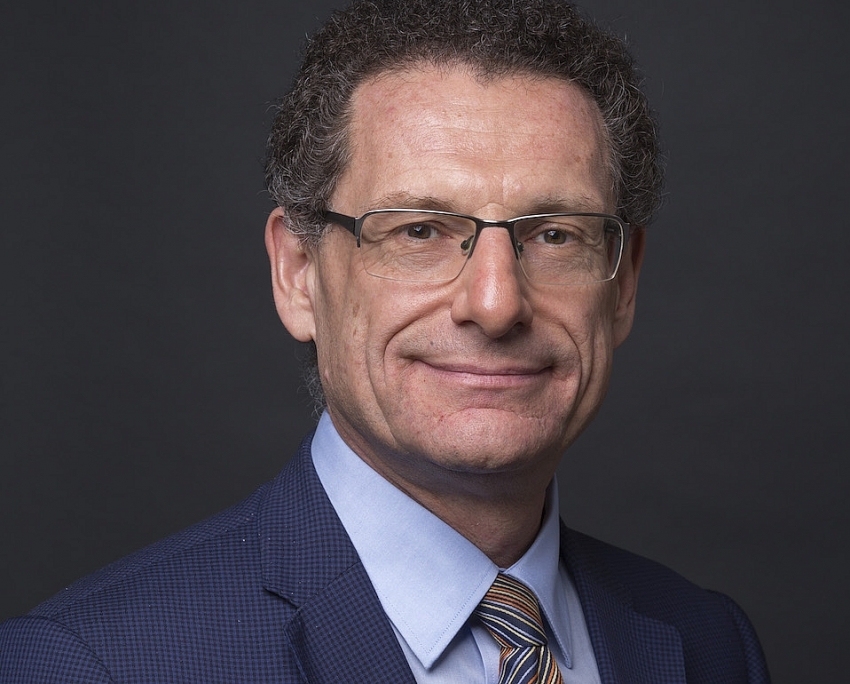Face verification is on the road
 |
| Andrew Bud, founder and CEO of iProov |
Compared to other verification technologies, what advantages does face verification offer?
The world has relied on knowledge-based identification for allowing people to access secure services online. Passwords, for example, are very common and yet they are not secure – they can be stolen and they can be shared. To make passwords more secure, organisations make them more complicated but then users can’t remember them, so they write them down, which makes them less secure. Passwords are no longer fit for purpose.
Face verification is also better than other biometric methods, for several reasons. In the past, if a bank wanted to check a customer’s identity, they would ask the customer to come into the bank with their ID and then a bank employee would check their validity.
iProov replicates that process online using our Genuine Presence Assurance technology. A customer scans their ID document using a mobile phone or computer. They then complete a brief, effortless facial scan using the same device. iProov matches the two to confirm that the person in the photo is the same person doing the authentication. It also confirms that the person is a real person (not a photo or video or a mask) and that they complete the authentication in real-time.
This simple yet highly secure process is not possible with other biometrics, because government-issued identity documents, such as a passport, identity card, or driver’s license, do not contain a copy of a fingerprint or an iris.
Face verification has also been greatly helped by the ubiquity of the front-facing camera on devices – it’s very easy to complete a face verification.
So face verification from iProov gives you highly secure, easy-to-use identity verification that protects a user’s privacy and can be done on any device or platform.
 Facial verification enhances Singaporean government's digital identity programme Facial verification enhances Singaporean government's digital identity programme |
What are the challenges in putting facial verification in practice, and how has the company made its products more appealing to customers?
iProov appeals to both our customers (the enterprises and organisations that contract with us) and to their customers, the end-users.
For the end-user, the appeal is that iProov is very easy to use. The face scan only takes a few seconds and does not require any movement or any reading of instructions. We surveyed a group of end-users earlier this year and 94 per cent said it was easy or straight-forward to use.
For enterprises or government bodies, the iProov solution is appealing because it offers very high success rates with excellent security and helps them comply with regulations while also improving their customer experience.
The main challenge is in perception. People confuse face verification with face recognition but they are two very different things. Face recognition involves faces being scanned in a public place or other building where the end-user does not know if or when it is being done and they don’t directly benefit from it.
Face verification is very different. It involves an end-user wanting to access their bank account or other online service and choosing to complete that face verification process. They know it’s happening, they benefit from it directly, and their privacy is respected.
Currently, Southeast Asia is emerging as a new technology hub and a great number of tech companies are targeting the region. What is iProov’s plan in the region? After Singapore, what will be the next target markets?
Southeast Asia is an area of big and exciting growth. We’re already working with partners in Thailand and Malaysia. We’re always actively looking for other strategic partners, particularly those technology companies that are serving the government, financial, or healthcare sectors.
What do you think about applying your facial technology solution in the country? Is the market appealing enough to lure in your company and others like it?
Vietnam is one of the fastest-growing economies in the world. Fast-growing economies have the opportunity to learn more quickly than other countries and go from A to D in the development of their ideas and services, rather than going from A to B to C to D like countries that have done it before. Vietnamese organisations have the chance to pioneer the use of face verification in their digital transformation strategies, so they can lead the field in delivering world-class customer experience and online security.
The financial sector in Vietnam in particular is embracing digital transformation. Banks must be able to verify the identity of online and remote customers – whether those customers are using mobile phones, computers, or kiosks in unstaffed branches. That’s what Genuine Presence Assurance does. There’s a big opportunity for Vietnamese organisations to benefit from iProov technology.
What the stars mean:
★ Poor ★ ★ Promising ★★★ Good ★★★★ Very good ★★★★★ Exceptional
Related Contents
Latest News
More News
- The next leap in Cloud AI (December 11, 2025 | 18:19)
- Vietnam’s telecom industry: the next stage of growth (December 11, 2025 | 18:18)
- Five tech predictions for 2026 and beyond: new era of AI (December 11, 2025 | 18:16)
- CONINCO announces new chairman and CEO (December 10, 2025 | 11:00)
- How AWS is powering the next-gen data era (December 09, 2025 | 13:14)
- Outlook in M&A solid for Singapore (December 08, 2025 | 10:31)
- Vietnamese firms are resetting their strategy for global markets (December 05, 2025 | 17:04)
- LPBank Securities accelerates AI and data innovation with AWS (December 05, 2025 | 09:00)
- Improving traceability capacity with Zebra Technologies (November 26, 2025 | 10:08)
- Ho Chi Minh City engages 500 CEOs in dialogue on building global megacity (November 25, 2025 | 16:00)

 Tag:
Tag:
























 Mobile Version
Mobile Version